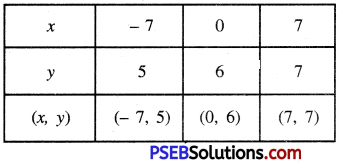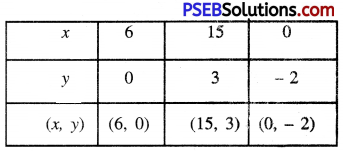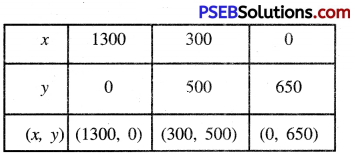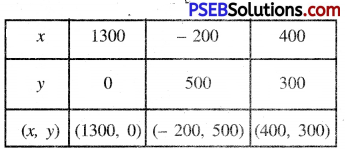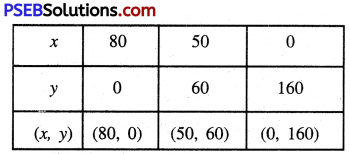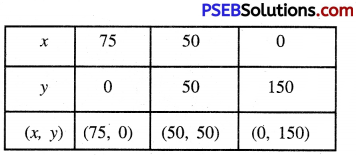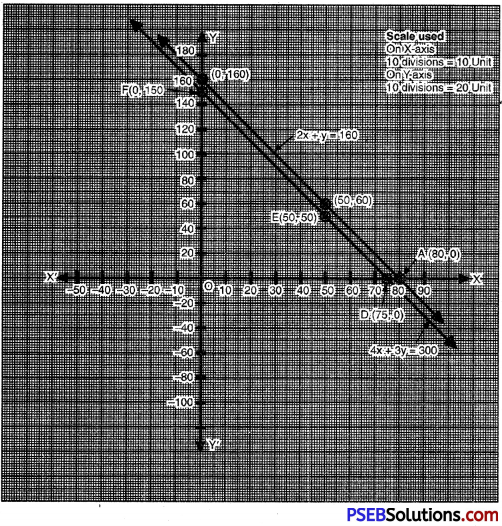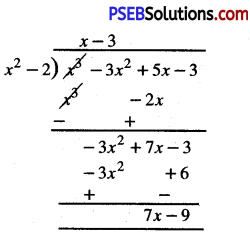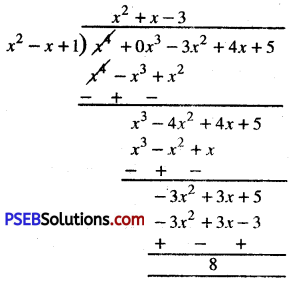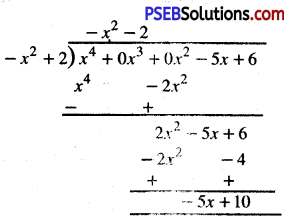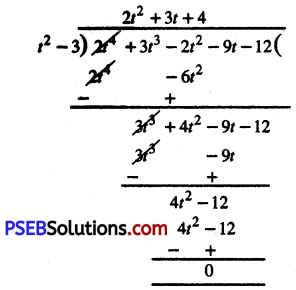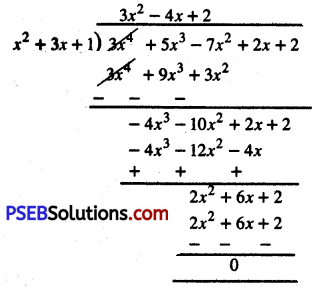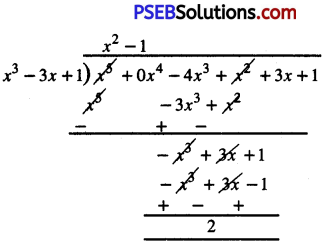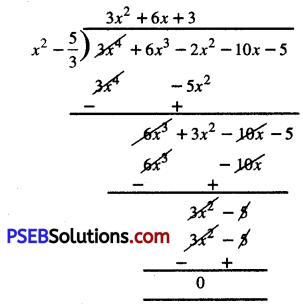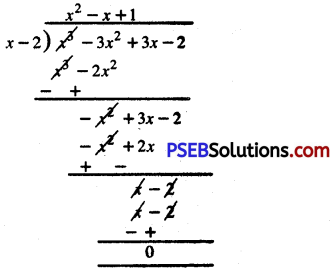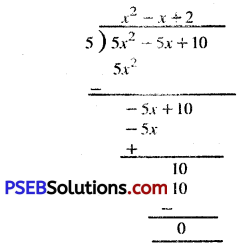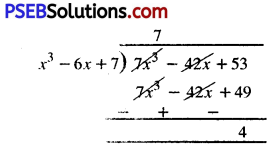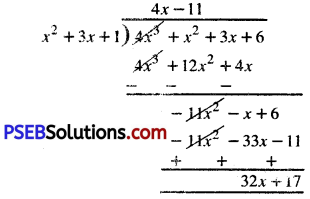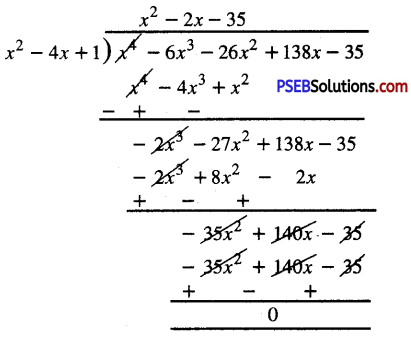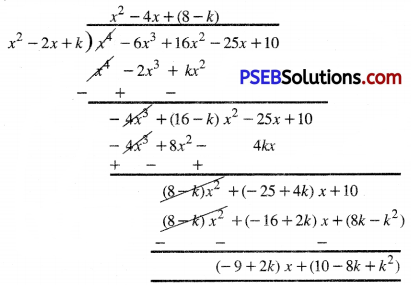Punjab State Board PSEB 10th Class English Book Solutions English Reading Comprehension Unseen Passages Exercise Questions and Answers, Notes.
PSEB 10th Class English Reading Comprehension Unseen Passages
नोट : परीक्षा-पत्र में Unseen Reading Comprehension के लिए दिया जाने वाला पैरा प्रायः व्याकरण की निर्धारित पुस्तक में से ही लिया जाता है। इसलिए विद्यार्थियों को ऐसे पैरे बहुत ध्यान से तैयार कर लेने चाहिएं।
(A) Passages From Grammar Book Note :
In all the passages, questions have been changed according to new pattern of Testing.
Passage – 1
One evening a boy of three was out for a walk with his father. There was also an elderly man with the father. Chatting, they walked on and went beyond the village. The green crops delighted the eyes. The elders were walking along the edge of a field. Not hearing the footsteps of the boy, the father looked back. The boy was sitting on the ground and seemed to be planting something. The father became curious. “What are you doing?” said he. “Look, Father, I shall grow guns all over the field,” was the innocent reply of the boy. His eyes shone with the strong faith that guns would grow in the field. Both the elders were struck with wonder at the little boy’s words. The boy was Bhagat Singh who later fought like a hero for India’s freedom and sacrificed his life.
Word-meanings : 1. elderly – बुजुर्ग 2. chatting – बातचीत करते हुए ; 3. curious – उत्सुक; 4. sacrificed – बलिदान दे दिया

Choose the correct option to answer each question :
Question 1.
Where were the elders walking?
(a) Along the bank of a canal.
(b) Along the edge of a well.
(c) Along the bank of the river.
(d) Along the edge of a field.
Answer:
(d) Along the edge of a field.
Question 2.
What was the boy doing when his father looked back?
(a) He was sitting on the ground.
(b) He was planting something.
(c) Both (a) and (b).
(d) Neither (a) nor (b).
Answer:
(c) Both (a) and (b).
Question 3.
What faith did the boy have?
(a) He believed that bombs would grow in the field.
(b) He believed that guns would grow in the field.
(c) He believed that green crops would grow in the field.
(d) He believed that brave men would grow in the field.
Answer:
(b) He believed that guns would grow in the field.
Question 4.
Father looked back because …………
(a) he did not hear the footsteps of his son.
(b) his son was calling him.
(c) his son was left behind.
(d) his son asked him to do so.
Answer:
(a) he did not hear the footsteps of his son.

Question 5.
Bhagat Singh sacrificed his life for …..
(a) his family
(b) truth
(c) India’s freedom
(d) his ideals.
Answer:
(c) India’s freedom
Passage 2
Dr. C.V. Raman was, a genius? who won the Nobel Prize for Physics, using simple equipment barely worth $300. He was the first Asian scientist to win the Nobel Prize. He was a man of boundless curiosity and had a lively sense of humour. His spirit of inquiry and devotion to science laid the foundation for scientific research in India. And he won honour as a scientist, and affection as a teacher and a man. Raman was studious. He kept in touch with the latest developments in science in the world around him. He had personal contacts with many scientists. He used to read new books and research papers from different centres. “The equipment which brought me the Nobel Prize did not cost more than three hundred rupees. A table drawer can hold all my research equipment,” he used to say with pride. It was his conviction that if the research worker is not inspired from within, no amount of money can bring him or her success in research.
Word meanings : 1. genius – प्रतिभाशाली ; 2. equipment – साज-सामान, उपकरण; 3. inquiry – जांच, उत्सुकता ; 4. studious – अध्ययनशील ; 5. conviction – दृढ़-विश्वास।
Choose the correct option to answer each question :
Question 1.
What kind of a man was Dr. C.V. Raman?
(a) He was a man of unlimited curiosity.
(b) He had a lively sense of humour.
(c) Both (a) and (b).
(d) Neither (a) nor (b).
Answer:
(c) Both (a) and (b).
Question 2.
What is he famous for ?
(a) For being the first American scientist to win the Nobel Prize.
(b) For being the first Asian scientist to win the Nobel Prize.
(c) For being the first African scientist to win the Nobel Prize.
(d) For being the first Japanese scientist to win the Nobel Prize.
Answer:
(b) For being the first Asian scientist to win the Nobel Prize.

Question 3.
He believed that if the research work is not ……… any amount of money cannot make the research successful.
(a) applauded by people
(b) done deeply
(c) inspired from within
(d) done thoughtfully.
Answer:
(c) inspired from within
Question 4.
The equipment that won him the Nobel Prize
(a) did not cost more than five hundred rupees.
(b) did not cost more than three hundred rupees.
(c) did not cost more than four hundred rupees.
(d) did not cost more than six hundred rupees.
Answer:
(b) did not cost more than three hundred rupees.
Question 5.
Which word in the passage means ‘scholarly’?
(a) genius
(b) studious
(c) conviction
(d) barely.
Answer:
(b) studious
Passage 3
Early rising leads to health and happiness. The man who rises late can have little rest in the course of the day. Anyone who lies in bed late is compelled to work till late hours in the evening. He has to go without the evening exercise which is so necessary for his health. In spite of all his efforts, his work will not produce as good results as that of an early riser. The reason for this is that he cannot take advantage of the refreshing morning hours. Some people say that the quiet hours of midnight are the best time for working. Several great thinkers say that they can write best only when they burn the midnight. Yet it is true to say that few men have a clear brain at midnight when the body needs rest and sleep. Those who work at that time soon ruin their health. Bad health must, in the long run, have a bad effect on the quality of their work.
Word-meanings : 1. in the course of — के दौरान; 2. compelled — बाध्या होना ; 3. burn the midnight oil – देर रात तक काम करना
Choose the correct option to answer each question :
Question 1.
What leads to health and happiness ?
(a) Late rising.
(b) Early rising.
(c) Brisk walk.
(d) Long walk.
Answer:
(b) Early rising.
Question 2.
What is a late riser compelled to do ?
(a) To work for a short while.
(b) To work early in the morning.
(c) To stop working at all.
(d) To work till late hours in the evening.
Answer:
(d) To work till late hours in the evening.
Question 3.
Why can’t we have a clear brain at midnight?
(a) Because we are fully fresh at that time.
(b) Because we want to go for walk at that time.
(c) Because at that time our body needs rest and sleep.
(d) Because at that time we are fully disturbed.
Answer:
(c) Because at that time our body needs rest and sleep.
Question 4.
The man who rises late cannot take advantage of ………
(a) the refreshing sunny hours.
(b) the refreshing midnight hours.
(c) the refreshing evening hours.
(d) the refreshing morning hours.
Answer:
(d) the refreshing morning hours.

Question 5.
The word ‘essential’ means – …………
(a) compelled
(b) necessary
(c) advantage
(d) ruin
Answer:
(b) necessary
Passage 4.
Each one of us should have a hobby. Sometimes boys and girls are encouraged in schools to take up hobbies. They work at certain things in schools such as collecting stamps, or carpentry, but this so-called hobby is a thing for schools only. They do not pay any attention to it at their homes. Sometimes this is because of poverty, sometimes because of lack of interest. But a hobby is not really a hobby unless we are so interested in it that we want to carry it on whenever we have spare time. According to the dictionary meaning, a hobby is a favourite subject or occupation that is not one’s main business. It is something in which we are more interested than in anything else.
Word-meanings : 1. encouraged – प्रोत्साहित; 2. poverty – निर्धनता
Choose the correct option to answer each question :
Question 1.
What is the dictionary meaning of ‘hobby’ ?
(a) A skill that is one’s source of earning.
(b) Favourite subject or occupation that is not one’s main business.
(c) Both (a) and (b)
(d) Neither (a) nor (b).
Answer:
(b) Favourite subject or occupation that is not one’s main business.
Question 2.
When does a hobby become a thing for schools only?
(a) It is when no attention is paid to it at home.
(b) It is when full attention is paid to it at home.
(c) It is when no attention is paid to it at school.
(d) It is when full attention is paid to it at school.
Answer:
(a) It is when no attention is paid to it at home.
Question 3.
Name the hobbies mentioned in the passage.
(a) Stamp collecting.
(b) Carpentry.
(c) Both (a) and (b).
(d) Neither (a) nor (b).
Answer:
(c) Both (a) and (b).
Question 4.
We should carry on our hobby whenever we have ……..
(a) no time
(b) spare time
(c) golden time
(d) busy time
Answer:
(b) spare time
Question 5.
Sometimes students cannot pay attention to their hobbies due to ……….
(a) over work and studies
(b) lack of spare time
(c) poverty or lack of interest
(d) none of these three.
Answer:
(c) poverty or lack of interest
Passage – 5
Ashoka, the most trusted son of Bindusara and the grandson of Chandragupta Maurya, was a brave soldier. He was the most famous of the Mauryan kings and was one of the greatest rulers of India. Ashoka extended the Mauryan Empire to the whole of India, reaching out even into Central Asia. Ashoka succeeded in conquering Kalinga after a bloody war in which 100,000 men were killed, 150,000 injured and thousands were captured and retained as slaves. The sight of the slaughter involved in his conquest’ deeply affected his mind. He renounced war and sought peace in Buddha’s preachings of love and non-violence. So he gave up hunting.
Word-meanings: 1. extended – फैलाया; 2. in conquering- जीतने में; 3. retained – बंदी बना लिए गए ; 4. slaughter- हत्याकाण्ड; 5. conquest- जीत ; 6. renounced- त्याग दिया|
Choose the correct option to answer each question :
Question 1.
What was the name of Ashoka’s grandfather ?
(a) Bindusara Maurya.
(b) Rishabh Maurya.
(c) Chandragupta Maurya.
(d) Bhisham Maurya.
Answer:
(c) Chandragupta Maurya.
Question 2.
What happened in the war of Kalinga ?
(a) 100,000 men were killed.
(b) 150,000 men were injured.
(c) Thousands were captured and retained as slaves.
(d) All of these three.
Answer:
(d) All of these three.
Question 3.
Write the changes in Ashoka’s life after the war.
(a) He gave up war.
(b) He sought peace in love and non-violence.
(c) Both (a) and (b).
(d) Neither (a) nor (b)
Answer:
(c) Both (a) and (b).

Question 4.
Ashoka was one of the …………..
(a) greatest saints of India
(b) greatest rulers of India
(c) greatest preachers of India
(d) greatest yogis of India
Answer:
(b) greatest rulers of India
Question 5.
For Ashoka the war of Kalinga was a ……………
(a) bloody massacre
(b) great war
(c) great victory for him
(d) turning point of his life.
Answer:
(d) turning point of his life.
Passage 6
“Brothers and sisters, the long night is at last drawing to a close. Miseries and sorrows are disappearing. Ours is a sacred country. She is gradually waking up, thanks to the fresh breeze all around. Are you prepared for all sacrifices for the sake of your mother-land ? If you are, then you can rid the land of poverty and ignorance. You should develop a strong physique? You should shape your mind through study and meditation. Only then will victory be yours. I loved my motherland dearly before I went to America and England. After my return, every particle of the dust of this land seems sacred to me.” Do you know who carried this message to the whole continent of Asia ? It was Swami Vivekananda.
Word meanings : 1. miseries – दुःख ; 2. gradually-धीरे-धीरे ; 3. physique – डील-डौल ; 4. meditation – चिन्तन।
Choose the correct option to answer each question :
Question 1.
How can we rid the land of poverty and ignorance?
(a) By fighting for our rights.
(b) By doing our duties.
(c) By making sacrifices for our family.
(d) By making sacrifices for the sake of our motherland.
Answer:
(d) By making sacrifices for the sake of our motherland.
Question 2.
How can you shape your mind ?
(a) Through study.
(b) Through meditation.
(c) Both (a) and (b)
(d) Neither (a) nor (b)
Answer:
(c) Both (a) and (b)
Question 3.
Where did Swami Vivekananda carry the message ?
(a) To the whole continent of Antarctica.
(b) To the whole continent of Asia.
(c) To the whole continent of Africa.
(d) To the whole continent of Europe.
Answer:
(b) To the whole continent of Asia.
Question 4.
India is gradually. …….
(a) waking up
(b) sleeping
(c) lagging behind
(d) preparing for the war.
Answer:
(a) waking up
Question 5.
Who speaks the above lines ?
(a) Mahavira
(b) Gautama Buddha
(c) Swami Vivekananda
(d) Guru Nanak Dev.
Answer:
(c) Swami Vivekananda

Passage 7.
A Nation’s Strength :
Not gold, but only men can make
A nation great and strong
Men who, for truth and honour’s sake,
Stand fast and suffer long.
Brave men who work while others sleep,
Who darewhile others fly,
They build a nation’s pillars deep,
And lift them to the sky. – R.W. Emerson
Word-meanings : 1. stand fast – डटे रहना ; 2. dare – सामना करते हैं ; 3. fly – भाग जाते हैं ; 4. pillars – स्तम्भ।
Choose the correct option to answer each question :
Question 1.
What makes a nation great and strong ?
(a) Its youth.
(b) Its soldiers.
(c) Its people.
(d) Its government.
Answer:
(c) Its people.
Question 2.
What do brave men do while others sleep?
(a) They work hard.
(b) They suffer long.
(c) They also sleep.
(d) They run away.
Answer:
(a) They work hard.
Question 3.
How can they lift a nation to the sky ?
(a) Through their sacrifices.
(b) Through their faith.
(c) Through their duty.
(d) Through their hard work.
Answer:
(d) Through their hard work.
Question 4.
Complete the line :
Who dare while ……………..!
(a) others fly
(b) others laugh
(c) others die
(d) others challenge.
Answer:
(a) others fly

Question 5.
Who are the real pillars of a nation ?
(a) Common people.
(b) Rich people.
(c) Brave people.
(d) Poor people.
Answer:
(c) Brave people.
Question 6.
The word ‘dare’ means –
(a) endure
(b) challenge
(c) raise
(d) reality
Answer:
(b) challenge
Passage 8
My Books :
I love my books
They are the homes
of queens and fairies,
Knights? and gnomes.
Each time I read I make a call
On some quaint person large or small,
Who welcomes me with a hearty hand
And leads me through his wonderland.
Each book is like
A city street
Along whose winding
Way I meet
New friends and old who laugh and sing
And take me off adventuring.
Word-meanings : 1. knights – योद्धा ; 2. gnomes – बौने ; 3. quaint – अजीब ; 4. winding – बल-खाती।
Choose the correct option to answer each question :
Question 1.
The poet loves his books because through them he …………
(a) meets new friends
(b) sees new lands
(c) both (a) and (b)
(d) neither (a) nor (b)
Answer:
(c) both (a) and (b)
Question 2.
How does the quaint person welcome the poet ?
(a) With no smile.
(b) With a sad heart.
(c) With a hearty hand.
(d) Any of these three.
Answer:
(c) With a hearty hand.
Question 3.
The poet is led through a …….. each time he reads a book.
(a) homeland
(b) wonderland
(c) woodland
(d) farmland.
Answer:
(b) wonderland
Question 4.
In the books, the poet meets new and old friends in the ……
(a) city streets
(b) wonderland
(c) villages
(d) farmhouses.
Answer:
(a) city streets
Question 5.
The antonym of the word ‘winding’ is ……
(a) straight
(b) round
(c) curved
(d) feeble
Answer:
(a) straight
Passage 9
Stone Walls Do Not A Prison Make:
Stone walls do not a prison make
Nor iron bars a cage :
Mind’s innocence and quiet take
That for a hermitage?
If I have freedom in my love,
And in my soul am free,
Angels alone that soar above
Enjoy such liberty. -R. Lovelace
Word-meanings : 1. hermitage – आश्रम; 2. angel – देवदूत
choose the correct option to answer each question :
Question 1.
What does not make a prison ?
(a) Strong walls.
(b) Stone walls.
(c) Weak walls.
(d) Brick Walls.
Answer:
(b) Stone walls.
Question 2.
According to the poet, what does not make a cage ?
(a) Iron bars.
(b) Wooden bars.
(c) Golden bars.
(d) Silver bars.
Answer:
(a) Iron bars.
Question 3.
Which quality of the mind makes a hermitage ?
(a) Innocence of the mind.
(b) Quiet acceptance.
(c) Both (a) and (b).
(d) Neither (a) nor (b).
Answer:
(c) Both (a) and (b).

Question 4.
‘Such liberty’ is enjoyed only by ……….
(a) birds
(b) angels
(c) devils
(d) animals.
Answer:
(b) angels
Question 5.
The word ‘liberty’ means – ……….
(a) spirit
(b) freedom
(c) jail
(d) rise
Answer:
(b) freedom
Passage 10
A child’s Evening Prayer :
Erel on my bed my limbs I lay,
God grant me grace my prayers to
say:
O God ! preserve? my mother dear
In strength and health for many a year;
And, O ! preserve my father too,
And may I pay him reverence due;
And may I my best thoughts employ
To be my parents’ hope and joy;
And O ! preserve my brothers both
From evil doings and from sloth,
And may we always love each other,
Our friends, our father, and our mother :
And still, O Lord, to me impart
An innocent and grateful heart,
That after my great sleep I may
Awake to Thy eternal day! – Samuel Taylor Coleridge
Worst-meanings : 1. ere – से फूर्व ; 2. preserve – सुरक्षित रखना ; 3. reverence – सम्मान ; 4. sloth — सुस्ती; 5. Thy — your.
Choose the correct option to answer each question :
Question 1.
When does the child pray ?
(a) Before going to bed.
(b) After going to bed.
(c) Before getting up.
(d) After getting up.
Answer:
(a) Before going to bed.
Question 2.
The child prays to God that his mother ……………. .
(a) may remain strong
(b) may remain healthy
(c) live long
(d) all of these three.
Answer:
(d) all of these three.

Question 3.
What does he ask for himself ?
(a) An innocent heart.
(b) A grateful heart.
(c) Both (a) and (b).
(d) Neither (a) nor (b).
Answer:
(c) Both (a) and (b).
Question 4.
The child pays ………… to his father.
(a) reverence
(b) strength
(c) wealth
(d) attention.
Answer:
(a) reverence
Question 5.
The child wants to be the hope and joy of ………
(a) God
(b) his parents
(c) his siblings
(d) his teachers.
Answer:
(b) his parents
Question 6.
Give the rhyme-scheme of the last four lines.
(a) abab
(b) abba
(c) aabb
(d) baba.
Answer:
(c) aabb
Passage 11.
The Rainbow :
Boats sail on the rivers,
And ships sail on the seas;
But clouds that sail across the sky
Are prettier? than these.
There are bridges on the rivers,
As pretty as you please;
But the bow that bridges heaven,
And overtops the trees,
And builds a road from earth to sky,
Is prettier far than these. – Christina Rossetti
Word-meanings : 1. sail – तैरना; 2. prettier — जयादा सुन्दर; 3. bow – कमान, इन्दूधनुष ; 4. overtops – के ऊपर से गुजाती है
Choose the correct option to answer each question :
Question 1.
Where does the rainbow build a road?
(a) From the sky to the sea.
(b) From the earth to the sky.
(c) From the land to the sea.
(d) None of these three.
Answer:
(b) From the earth to the sky.
Question 2.
What are prettier than boats and ships ?
(a) Aeroplanes.
(b) Raindrops.
(c) Clouds.
(d) Trains.
Answer:
(c) Clouds.
Question 3.
According to the poet, the …… is the prettiest.
(a) sky
(b) rainbow
(c) rain
(d) cloud.
Answer:
(b) rainbow

Question 4.
The rainbow bridges ………..
(a) hell
(b) aboder
(c) heaven
(d) sky.
Answer:
(c) heaven
Question 5.
The word ‘far’ means – ……….
(a) a little.
(b) much more.
(c) many a.
(d) the few.
Answer:
(b) much more.
Passage 12
The Noble Nature :
It is not growing like a tree
In bulk?, doth make man better be;
Or standing long an oak, three hundred year,
To fall a log at last, dry, bald and sere?:
A lily of a day
Is fairer far in May,
Although it falls and dies that night;
It was the plant and flower of light.
In small proportions we just beauties see:
And in short measures life may perfect be. -Ben Jonson
Word-meanings : 1. bulk — आकार में बड़ा ; 2. bald — गंजा; 3. sere – बेकार के; 4. proportions — मात्रा
Choose the correct option to answer each question :
Passage 1.
What does not make a man a better being ?
(a) Being wealthy
(b) Becoming famous.
(c) Growing in size.
(d) Being kind-hearted.
Answer:
(c) Growing in size.
Passage 2.
Which thing in nature can live up to three hundred years ?
(a) A lily flower.
(b) An oak tree.
(c) A sunflower.
(d) A willow tree.
Answer:
(b) An oak tree.
Passage 3.
How long does a lily live ?
(a) For a day.
(b) For a week.
(c) For a month.
(d) For a year.
Answer:
(a) For a day.
Passage 4.
The message of this poem is that a …………. but ………… life is far better than a worthless life of long years.
(a) long, virtuous.
(b) long, vicious.
(c) short, virtuous.
(d) short, vicious.
Answer:
(c) short, virtuous.

Passage 5.
In short measures also, life may be …….
(a) pious
(b) perfect
(c) impious
(d) imperfect.
Answer:
(b) perfect
Passage 13.
The great advantage of early rising is the good start it gives us in our day’s work. The early riser has done a large amount of hard work before other men have got out of bed. In the early morning, the mind is fresh and there are few sounds or other distractions, so that the work done at that time is generally well-done. In many cases, the early riser also finds time to take some exercise in fresh morning air, and this exercise supplies him with a fund of energy that will last until the evening . By beginning so early, he knows that he has plenty of time to do thoroughly all the work he can be expected to do, and is not tempted to hurry over any part of it. All his work being finished in good time, he has a long interval of rest in the evening before the timely hour when he goes to bed. He gets to sleep several hours before midnight, at the time when sleep is most refreshing and after a sound night’s rest, rises early next morning in good health and spirits for the labour of the next day.
Word-meanings : 1. advantage – लाभ ; 2. distractions – भटकाव ; 3. thoroughly – अच्छी तरह।
Choose the correct option to answer each question :
Question 1.
……….. gives our day’s work a good start.
(a) Late rising.
(b) Going to bed late.
(c) Early rising.
(d) Going to bed early.
Answer:
(c) Early rising.
Question 2.
Why is the work done in the early hours generally well-done ?
(a) Because the mind is fresh
(b) Because the mind is free from noises.
(c) Because the mind is free from distractions.
(d) All of these three.
Answer:
(d) All of these three.
Question 3.
When is the mind fresh ?
(a) Late at night.
(b) In the evening.
(c) In the early morning.
(d) At midnight.
Answer:
(c) In the early morning.
Question 4.
We can find ample time of rest in the evening by …
(a) taking exercise
(b) finishing our work at night
(c) rising late
(d) finishing our work in good time.
Answer:
(d) finishing our work in good time.
Question 5.
The word ‘tempted’ means –
(a) suitable
(b) benefit
(c) usually
(d) attracted
Answer:
(d) attracted
(B) Some Other Passages
Passage 1
Of all the trees, of southern Asia, the banyan is unique, not only for the manner of its growth, but for the area of shade it provides from the burning sun. Its close relationship with man has evolved? over the years to make the banyan a popular meeting place, a focal point of worship and a source of practical materials for commerce. Known as the strangler fig because of its unusual manner of growth, the banyan is an epiphyte6 or air plant, that has its birth in the branches of a host tree and lives on airborne moisture and nutrients. Banyan seeds are deposited by birds, bats or monkeys in the rich soil collected in the crevices? of host-tree branches. As the banyan grows, it sends aerial roots down the trunk of the supporting tree. In time, the roots that reach the ground choke the host tree by preventing its trunk from enlarging. The two best-known species of banyans are : the Indian (Ficus benghalensis), one of the world’s largest tropicalo trees; and the Chinese (Ficus retusa), a smaller species with fewer aerial roots.
Word-meanings : 1. provides – देता है, टिंटा 7 ; 2. evolved – धीरे-धीरे विकसित हुआ ; 3. focal – केन्द्रीय ; 4. strangler – जो किसी चीज़ की वृद्धि को दबाता या रोकता है ; 5. fig – चौड़े पत्तों वाला पेड़; 6. epiphyte – एक पौधा जो दूसरे पौधे या कभी-कभी दूसरी चीज़ पर बढ़ता है; 7. crevices – दरारें; 8. aerial – आकाश में लटका हुआ ; 9. tropical – उष्ण कटिबन्धी।

Choose the correct option to answer each question :
Question 1.
Why is the banyan called the strangler fig?
(a) Because it chokes the host tree.
(b) Because it chokes other trees.
(c) Because it chokes the drains.
(d) Any of these three.
Answer:
(a) Because it chokes the host tree.
Question 2.
In what ways is the banyan tree unique ?
(a) It is unique in the manner of its growth.
(b) It is unique in terms of the area of shade it provides.
(c) Both (a) and (b).
(d) Neither (a) nor (b).
Answer:
(c) Both (a) and (b).
Question 3.
The banyan tree is a popular meeting place because ……….
(a) it provides cool shade.
(b) it provides sweet fruit.
(c) it provides a focal point of worship.
(d) none of these three.
Answer:
(c) it provides a focal point of worship.
Question 4.
The Indian banyan is one of the world’s tropical trees.
(a) oldest
(b) smallest
(c) youngest
(d) largest
Answer:
(d) largest
Question 5.
The antonym of the word ‘enlarging’ is –
(a) enhancing
(b) following
(c) contracting
(d) forgiving.
Answer:
(c) contracting
Passage 2
Sir Alexander Fleming was a very humble? and modest? man. He found penicillin by chance. He was very hard-working. He tried all his life to fight for killing germs in the human body. Before the invention of penicillin, carbolic acid and sulpha drugs were used as disinfectants. These things killed the germs of many diseases, but they also harmed the cells of human body. Penicillin saved the lives of millions of human beings.
Word-meanings : 1. humble – नम्र, विनीत ; 2. modest – विनम् संकोची; 3. by chance – संयोग से ; 4. cells – कोशिकाएं।
Choose the correct option to answer each question :
Question 1.
What was the nature of Sir Alexander Fleming ?
(a) A very humble man.
(b) A very hardworking man.
(c) A very modest man.
(d) All of these three.
Answer:
(d) All of these three.
Question 2.
What did he find ?
(a) Penicillin.
(b) Radium.
(c) Carbolic acid.
(d) Sulpha drugs.
Answer:
(a) Penicillin.
Question 3.
Penicillin saved the lives of ……………….. human beings.
(a) hundreds
(b) thousands
(c) millions
(d) any of these three.
Answer:
(c) millions
Question 4.
……… harmed the cells of human body.
(a) Carbolic acid
(b) Sulpha drugs
(c) Both (a) and (b).
(d) Neither (a) nor (b).
Answer:
(c) Both (a) and (b).

Question 5.
The word ‘invention’ means –
(a) medicines
(b) Sulpha drugs
(c) noble
(d) discovery
Answer:
(d) discovery
Passage 3
The elephant is the only animal with a trunk?. It uses its trunk in many ways. It pulls leaves of trees with its trunk and then puts them into its mouth. It can use its trunk to get water. The trunk can hold a lot of water to drink. An elephant needs to drink more than three pints of water every day. In Africa, men have hunted elephants for their tusks. The ivory from tusks is made into many beautiful things.
heavy things over long distances.
Word-meanings : 1. trunk- हाथी की सूंड ; 2. pint- तरल पदार्थ नापने की इकाई ; 3. tusk- हाथी का लम्बा दांत जो मुंह से बाहर निकला होता है ; 4. ivory- हाथीदांत।
Choose the correct option to answer each question :
Question 1.
An elephant uses its trunk to …..
(a) pull leaves
(b) put food into its mouth
(c) get water
(d) all of these three.
Answer:
(d) all of these three.
Question 2.
How much water does an elephant need to drink in a day?
(a) More than one pint of water.
(b) More than three pints of water.
(c) Less than two pints of water.
(d) Less than four pints of water.
Answer:
(b) More than three pints of water.
Question 3.
Which is the only animal who has a trunk ?
(a) The lion.
(b) The horse.
(c) The leopard.
(d) The elephant
Answer:
(d) The elephant
Question 4.
The ivory from ………… is used to make many beautiful things.
(a) trunk
(b) tusks
(c) tail
(d) trumpet.
Answer:
(b) tusks
Question 5.
Which word in the passage means ‘teeth?
(a) tusks
(b) trunk
(d) ivory.
Answer:
(b) tusks
Passage 4.
Guru Gobind Singh, the last of the ten Sikh Gurus, was a great son of India. He led India to sublime heights of glory. He brought about moral resurgences and created order out of disorderly social conditions. He was a multi-faceted personality. He was a poet, a soldier, a statesman, a leader and a true socialist, all in one. He put life into the dying social order by giving it a wholly new outlook.
Word-meanings : 1. sublime – उत्कृष्ट, भव्य; 2. glory – यश, गौरव: ; 3. resurgence – एक बार फिर से अधिक ताक़तवर तथा अधिक प्रसिद्ध होना।
Choose the correct option to answer each question :
Question 1.
Who was the last Sikh Guru ?
(a) Guru Nanak Dev.
(b) Guru Gobind Singh.
(c) Guru Arjun Dev.
(d) Guru Ram Das.
Answer:
(b) Guru Gobind Singh.
Question 2.
What did he do to improve the social order ?
(a) He brought about financial prosperity.
(b) He brought about moral resurgence.
(c) Both (a) and (b).
(d) Neither (a) nor (b).
Answer:
(b) He brought about moral resurgence.
Question 3.
How did he put life into the dying social order ?
(a) By working for the poor and weak people.
(b) By leading it to heights of glory.
(c) By giving it a wholly new outlook.
(d) None of these three.
Answer:
(c) By giving it a wholly new outlook.
Question 4.
Guru Gobind Singh was ……..
(a) a great soldier
(b) a great poet
(c) a true socialist
(d) any of these three.
Answer:
(d) any of these three.
Question 5.
The antonym of the word ‘disorderly’ is ……..
(a) ordered
(b) disorder
(c) orderly
(d) disordered.
Answer:
(c) orderly
Passage 5
True Friendship:
Everyone that flatters thee
Is no friend in misery.
Words are easy like the wind
Faithful friends are hard to find.
Every man will be thy friend,
Whilst thou hast wherewithal to spend.
But if store of crowns” be scant,
No man will supply thy want’.
He that is thy friend indeed,
He will help thee in thy need.
If thou sorrow, he will weep,
If thou wake, he cannot sleep.
Thus of every grief in heart,
He with thee doth bear a part.
These are certain signs to know,
Faithful friends from flattering foe. -William Shakespeare
Word-meanings : 1. flatter – चापलूसी करना, खुशामद करना; 2. thee, thou – तुम्हें, तुम; 3. easy like the wind – कुछ खर्च नहीं होता; 4. wherewithal – सम्पत्ति; 5. crowns – पुराने समय में ब्रिटेन में प्रचलित सिक्के; 6. scant – कम, थोड़ा; 7. want – ज़रूरत, आवश्यकता; 8. doth bear – लेता है; 9. foe – शत्रु।
Choose the correct option to answer each question :
Question 1.
What is this poem about ?
(a) About the love of money.
(b) About true friendship.
(c) About great leaders.
(d) About foolish persons.
Answer:
(b) About true friendship.
Question 2.
What does the poet say about flatterers ?
(a) He calls them friends.
(b) He calls them enemies.
(c) He calls them teachers.
(d) He calls them poets.
Answer:
(b) He calls them enemies.
Question 3.
When do people become our friends ?
(a) When we have the money to spend.
(b) When we have the time to spare.
(c) When we have the power to rule.
(d) When we have the wisdom to judge.
Answer:
(a) When we have the money to spend.
Question 4.
How will a true friend feel when we are in grief?
(a) He will feel a sense of relief.
(b) He will feel bored and disturbed.
(c) He will feel very indifferent.
(d) He will feel very unhappy.
Answer:
(d) He will feel very unhappy.
Question 5.
What distinction does the poet want us to understand ?
(a) The distinction between poverty and riches.
(b) The distinction between high and low.
(c) The distinction between friends and flatterers.
(d) The distinction between purity and impurity.
Answer:
(c) The distinction between friends and flatterers.
Passage 6
The Centipede
The little creature
with a hundred feet
was on its journey
to where
only it knew
My civilised foot
dressed in polished leather
came down upon it
ever so gently
there was only a soft sound
signifyings
the end
of a creature of God
my Maker.
I looked to see
if my sole was soiled?
and walked away.
word-meanings : 1. centipede – कनखजूरा ; 2. creature – जीव ; 3. civilised – सभ्य ; 4. polished leather – पॉलिश किए चमड़े के जूते ; 5. signifying – व्यक्त करते हुए ; 6. sole – तलवा ; 7. soiled – गन्दा होना।
Choose the correct option to answer each question :
Question 1.
What little creature does the poet talk of ?
(a) The scorpion.
(b) The wasp.
(c) The ringworm.
(d) The centipede.
Answer:
(d) The centipede.
Question 2.
Why does the poet call his foot civilised ?
(a) Because he was wearing polished shoes.
(b) Because his foot had crushed the little creature.
(c) Because his polished shoes had come down gently upon the little creature.
(d) None of the above.
Answer:
(c) Because his polished shoes had come down gently upon the little creature.
Question 3.
What kind of poem would you say this is ?
(a) Romantic.
(b) Satirical.
(c) Humorous.
(d) Religious.
Answer:
(b) Satirical.
Question 4.
What happened when the poet’s foot came down upon the little creature ?
(a) There was a soft sound.
(b) There was a loud sound.
(c) There was a sharp cry.
(d) There was no sound at all.
Answer:
(a) There was a soft sound.

Question 5.
The poet walked away. What does this show ?
(a) He was full of repentance on what he had done.
(b) He was full of pity for the little creature.
(c) He was indifferent to what had happened.
(d) He was full of praise for God.
Answer:
(c) He was indifferent to what had happened.
Passage 7.
Who Loved The Best :
‘I Love you, mother,’ said little John;
Then, forgetting his work his cap went on,
And he was off to the garden swing?,
Leaving his mother, the wood to bring.
‘I love you, mother,’ said little Nell,
‘I love you better than tongue can tell.’
Then she teased and pouted half the day,
Till mother rejoiced when she went to play.
‘I love you, mother,’ said little Fan,
“To-day I’ll help you all I can’.
To the cradle then she did softly creep
And rocked the baby till it fell asleep.
Then stepping softly she took the broom
And swept floor and dusted the room.
Busy and happy all day was she,
Helpful and cheerful as child can be.
‘I love you, mother,’ again they said,
Three little children going to bed.
How do you think the mother guessed”,
Which of them really loved the best?
Word-meanings : 1. little – नन्हा; 2. swing— झूला; 3. pouted – मुंह फुला लिया; 4. rejoiced – बहुत खुश हो गई; 5. cradle – पालना; 6. cheerful- प्रसन्न guessed–अंदाज़ा लगाया
Choose the correct option to answer each question :
Question 1.
Who said, “I love you, mother’?
(a) John.
(b) Nell.
(c) Fan.
(d) All the three.
Answer:
(d) All the three.
Question 2.
Who had to bring the wood ?
(a) Mother.
(b) John
(c) Nell.
(d) Fan.
Answer:
(a) Mother.
Question 3.
Who was lying in the cradle ?
(a) John.
(b) Nell.
(c) Fan.
(d) None of these three.
Answer:
(d) None of these three.
Question 4.
Who was busy and happy all day ?
(a) Little John.
(b) Little Nell.
(c) Little Fan.
(d) The mother.
Answer:
(c) Little Fan.
Question 5.
Who do you think loved mother the best ?
(a) John.
(b) Nell.
(c) Fan
(d) None of these three.
Answer:
(c) Fan
Passage 8
The storm came on before its time,
She wandered? up and down;
And many a hill did Lucy climb;
But never reached the town.
The wretched parents all that night,
Went shouting far and wide;
But there was neither sound nor sight,
To serve them for a guide.
Word-meanings : 1. wandered — इधर-इधर भटकती रही; 2. wretched – दुःखी, शोक-संतप्त; 3. far and wide – दूर-दूर तक।
Choose the correct answer for each question :
Question 1.
When did the storm come ?
(a) Before its time.
(b) After its time.
(c) At midnight.
(d) Early in the morning.
Answer:
(a) Before its time.
Question 2.
Why did Lucy not reach the town?
(a) Because she didn’t want to travel in the storm.
(b) Because she didn’t want to leave her native place.
(c) Because she drowned in the river.
(d) Because she lost her way in the storm.
Answer:
(d) Because she lost her way in the storm.
Question 3.
What did the parents do?
(a) They went to the town.
(b) They searched for Lucy all night.
(c) They waited for her return from the town.
(d) They went to the police station for help.
Answer:
(b) They searched for Lucy all night.
Question 4.
She wandered ………..
(a) up and down
(b) here and there
(c) far and wide
(d) near and far.
Answer:
(a) up and down

Question 5.
But there was …..
(a) neither heat nor light
(b) neither sound nor sight
(c) either heat or light
(d) either sound or sight.
Answer:
(b) neither sound nor sight
![]()
![]()
![]()
![]()
![]()
![]()
![]()
![]()
![]()
![]()
![]()
![]()
![]()
![]()
![]()

